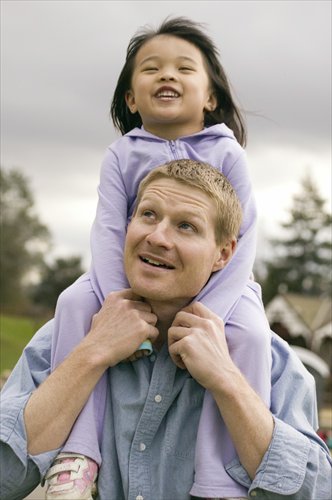Expats apply to raise a Chinese baby as their own in China

Expats looking to adopt in China are required to get approval from their home countries first. Photo: IC
On January 31 in 2013, right before the Chinese New Year, Mai Xiong, an American doctor of Taiwanese descent, took an orphan baby girl home from the hospital to better look after her. An enthusiastic volunteer who has been helping orphan care facilities in Shanghai since she came to live in China in 2009, Xiong soon bonded with the girl and filed for adoption two months later. In July 2014, she finally officially adopted her daughter, little Angelina.
Expat adoptive parents are in a very unique position, according to Xiong.
"The process of adopting [a Chinese child] in China is the same as in the US, but there are some special circumstances to doing the paperwork since we are living overseas," she said. "Unfortunately, many adoption agencies in the [adoptive parents'] home country don't even know how to advise families, making it even more complicated."
Compared with being put on a waiting list, bonding with the child first and then trying to adopt is more common among expat adoptions, Xiong said.
The biggest challenge adopting as an expat, according to Xiong, was "living in daily fear and anxiety" because there's no guarantee that the child would be matched to her.
Wu Gongzhan, vice president and managing director of the Asia department of the Gladney Center for Adoption, an American adoption and advocacy organization headquartered in Texas since the 1880s, agreed that expat adoption is more complicated.
While being able to know the child beforehand would give the adoptive parents privilege because they already know the child's medical status, temperament, and how to take care of him or her, the legal process is longer as much of the required paperwork is done in the US.
"Quite a few adoption agencies are paying attention to this matter now, and we are more than willing to provide service to expat families," he said. In the last six months or so, Wu has advised about 10 expat families who are looking to adopt in China.
According to the Ministry of Civil Affairs (MCA), foreigners were listed as the adoptive parents in 2,887 adoptions in 2014.
But expat adoption is still a relatively new territory.
The person in charge of the adoptive parents' eligibility review department at the China Centre for Children's Welfare and Adoption at the MCA surnamed Zhang, said that no specific data is kept on expat adoption.
According to the center's website, foreigners who have lived in China for more than one year can file for faster processing. Also, the paperwork for expat adoptive parents is similar to that of their counterparts overseas, except that the former will have to submit a certificate from the local police that proves that they didn't commit any crime while living in China.
But not every expat can adopt, at least, not for now.
A member of the Hague Adoption Convention, a convention regulating international adoption signed in 1993, China is currently cooperating with 17 countries on international adoption, Zhang said.
"Anybody looking to adopt in China is required to get approval from their home country," Zhang said. But in some cases, expats living in China might not be able to get approval from their country's authorities.
One of the things Xiong always hear from expats in China is that they want to adopt but don't know where to start. She also realized that when families adopt and later repatriate, any information they had left with them. So, in February, with the support of some other expat families, Xiong started Adoption Resources China (ARC), a network that provides adoptive families living in China with resources.
"We only want to give her a better chance at life," she said.
Newspaper headline: Charting new waters